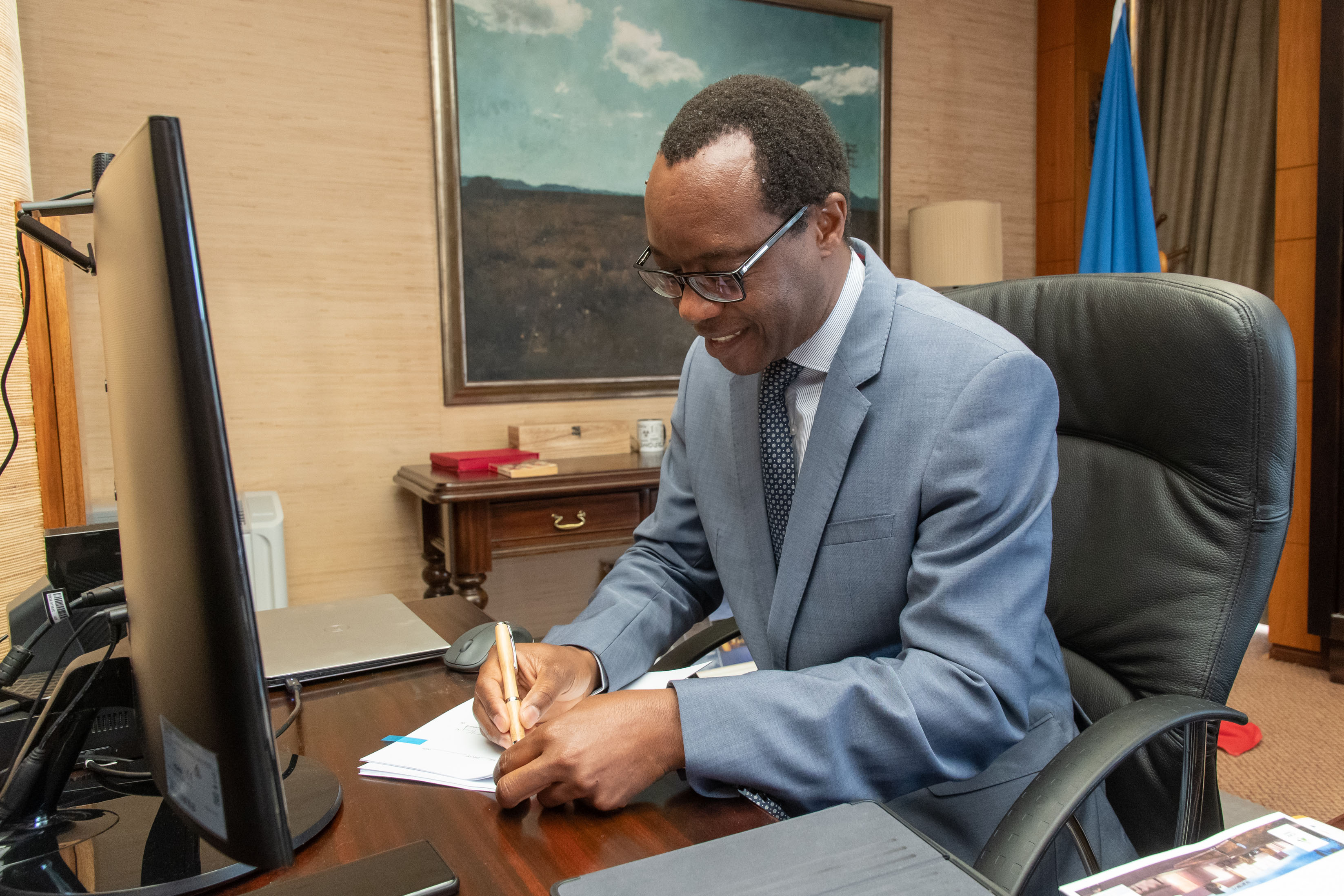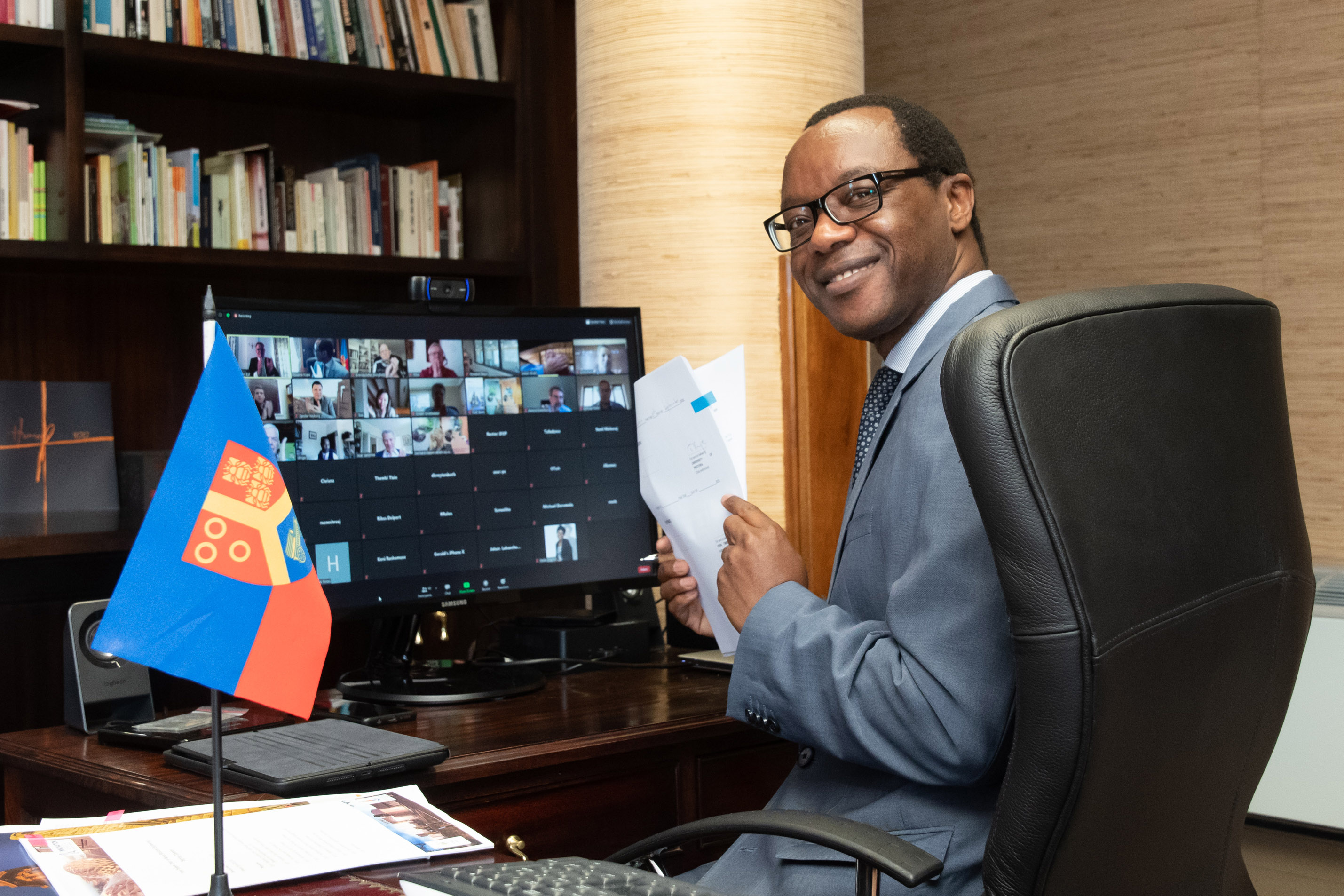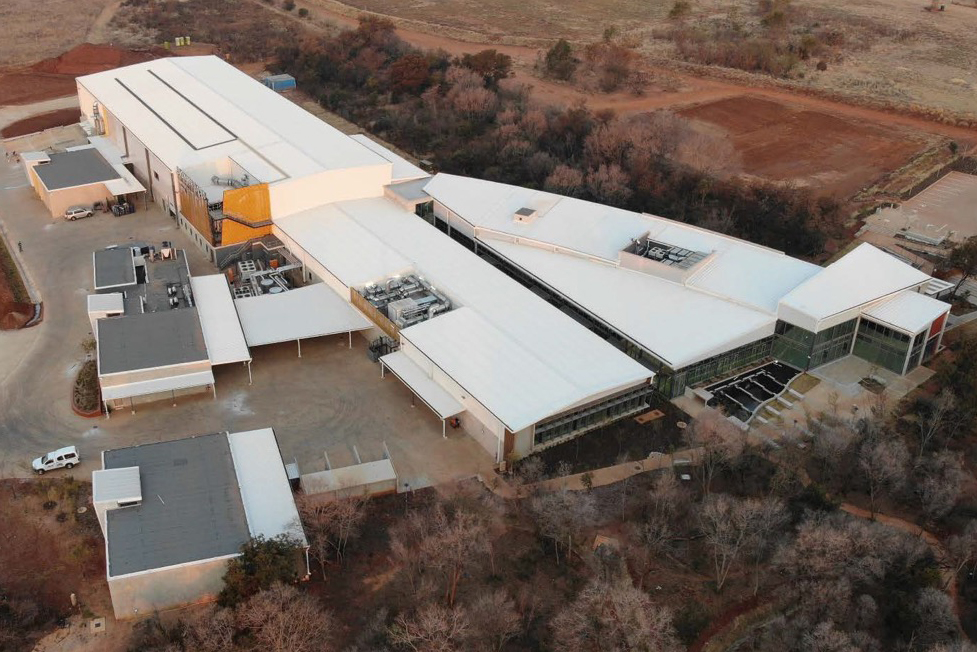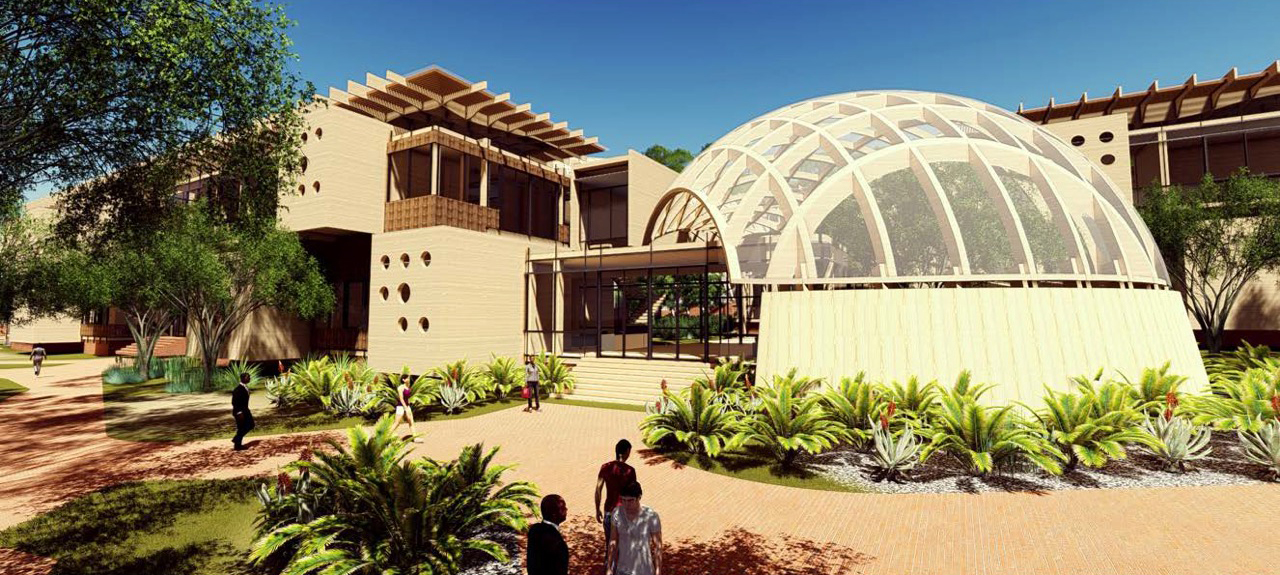Agreement to fund the York Timbers Chair in Wood Structural Engineering signed 2020-09-15
The launch of the trans-disciplinary York Timbers Chair in Data-Driven, Wood Structural Engineering for a Sustainable Built Environment and African Bioeconomy is a step closer following the signing of a funding agreement between the University of Pretoria (UP) and York Timbers. UP Vice-Chancellor and Principal Prof. Tawana Kupe and York Timbers CEO Mr Pieter van Zyl signed this agreement during a virtual ceremony on 11 September. The ceremony was attended by several of York Timbers’ management and scientific team, UP Executive members and research leaders, as well as representatives from Forestry South Africa, industry partners and government departments.
The Chair will be officially launched as a trans-disciplinary academic research unit at UP in 2021 and plans include the establishment of an operational timber structural engineering laboratory in the Engineering 4.0 building on the Innovation Africa 4.0 campus. This will eventually lead to the stimulation of using modular, mass timber, sustainable approaches to building construction that will also contribute to the development of the bioeconomy in Africa.
This new research Chair will bring together a diverse, multidisciplinary team of researchers and postgraduate students from several faculties and departments at UP including Innovation Africa @UP, Faculty of Engineering, Built Environment and Information Technology, Department of Civil Engineering, Department of Chemical Engineering, Graduate School of Technology Management, School of Information Technology, Department of Architecture, Institute of Applied Materials, Institute for Data Science, the Faculty of Natural and Agricultural Sciences’ Department of Microbiology, Genetics and Biochemistry and the Forestry and Agricultural Biotechnology Institute (FABI).
Professor Kupe thanked York Timbers for their foresight in partnering with UP on this new venture. “It is a celebration of innovative partnerships with big societal impact”. The Executive Director of Forestry South Africa, Mr Michael Peter, described it as “the most exciting development seen in the South African forestry industry in the past 15 years”.
“York Timbers’ vision is to become the leading integrated timber processor in southern Africa and to pioneer the application of engineered wood products as sustainable building materials in Africa and sees the establishment of this Research Chair as the first step in realizing these ambitions,” explained Mr van Zyl. Most of South Africa’s timber is used for low-value roof trussing and is, compared to wood from northern hemisphere timber producing countries, perceived to be of lower grade due to the faster growth of our pine plantations. “However, with new engineered wood technology, high-value wood construction products can be produced from local pine plantations. South Africa has to develop the appropriate engineering, safety and building codes for its own engineered wood products to stimulate a new construction industry based on this technology. The collaboration with UP is of critical importance to ensure that York’s integrated vision for mass timber construction ‘from genetics to product’ is realized,” he concluded.
Director of Innovation Africa @UP and FABI, Prof. Bernard Slippers explained that FABI was the first Institute in Innovation Africa@UP and provides a familiar home for York and other long-term partners.“The relationship between York Timbers and UP stretches back more than 20 years as the company is already part of FABI, via the Tree Protection Co-operative Programme (TPCP) and, more recently, the Forest Molecular Genetics (FMG) Programme. These relationships provide a foundation for interaction between the organizations that is based on trust”.
“Innovation Africa @UP is the most recent trans-disciplinary platform established by the University of Pretoria, and connects a number of the University’s most prominent research platforms, including FABI, Engineering 4.0 and Future Africa and its broader expertise in the faculties. To me, this initiative embodies the kind of leadership, strategy and vision matched by ability and action, that South Africa and Africa needs to not only emerge from COVID-19, but to develop our country and continent to its rightful place of competing on an equal basis with the rest of the world. It’s an initiative that charts a new course of interaction and integration between departments and faculties at UP, and also connecting to the expertise and capacity of its industry partner,” he concluded.
Professor Zander Myburg, leader of the FMG Programme points out that developments in tree genomics and biotechnology are creating opportunities to develop molecular breeding approaches and, in future, genetic engineering, to improve growth, tree form and wood quality in ways that will allow engineered wood products of similar or superior quality to northern hemisphere products. “The FMG Programme is developing such genome-assisted breeding resources for forestry species including the tropical pines that form the basis of structural timber production in South Africa. The integration of large amounts of data spanning genomics, environment, tree growth, harvesting, wood properties and processing require modern data science and artificial intelligence approaches”.





